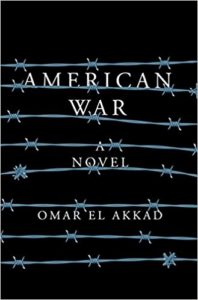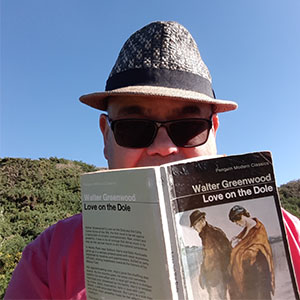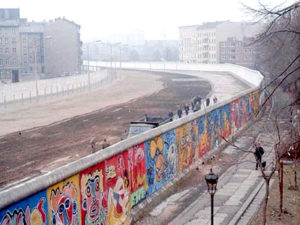
American War by Omar El Akkad (Picador)
An audacious and powerful debut novel: a second American Civil War, a devastating plague, and one family caught deep in the middle–a story that asks what might happen if America were to turn its most devastating policies and deadly weapons upon itself.
Sarat Chestnut, born in Louisiana, is only six when the Second American Civil War breaks out in 2074. But even she knows that oil is outlawed, that Louisiana is half underwater, and that unmanned drones fill the sky. When her father is killed and her family is forced into Camp Patience for displaced persons, she begins to grow up shaped by her particular time and place. But not everyone at Camp Patience is who they claim to be. Eventually Sarat is befriended by a mysterious functionary, under whose influence she is turned into a deadly instrument of war. The decisions that she makes will have tremendous consequences not just for Sarat but for her family and her country, rippling through generations of strangers and kin alike.
American War has been short-listed for the 2018 Arthur C. Clarke award. A selection of our panel of shadow jurors respond to the novel below…
Gary K. Wolfe
 Omar El Akkad’s first novel strikes me as a gorgeously written and deeply felt tale which at times turns into a rather wheezy machine. Spanning nearly a half-century of life in a fractured late 21st century America following a “Second American Civil War” in which several Southern states seceded over (of all things) the use of fossil fuels, the novel shows an admirable degree of ambition and complexity, and it sets out to accomplish, basically, three things. The first, and most successful, is tracing the life of Sara T. Chestnut (called Sarat after a teacher mistakenly reads her middle initial as part of her first name) from early childhood in a devastated Louisiana through her radicalization as a teenager, her role as a resistance fighter, her capture and torture as a leading Southern figure in the rebellion, and finally to her damaged adulthood and her final involvement in a dramatic act of terrorism. Much of this is told as reconstructed decades later from her journals by her nephew Benjamin, now living in the comparatively safe haven of “New Anchorage,” and as a multigenerational family drama it gains considerable emotional resonance.
Omar El Akkad’s first novel strikes me as a gorgeously written and deeply felt tale which at times turns into a rather wheezy machine. Spanning nearly a half-century of life in a fractured late 21st century America following a “Second American Civil War” in which several Southern states seceded over (of all things) the use of fossil fuels, the novel shows an admirable degree of ambition and complexity, and it sets out to accomplish, basically, three things. The first, and most successful, is tracing the life of Sara T. Chestnut (called Sarat after a teacher mistakenly reads her middle initial as part of her first name) from early childhood in a devastated Louisiana through her radicalization as a teenager, her role as a resistance fighter, her capture and torture as a leading Southern figure in the rebellion, and finally to her damaged adulthood and her final involvement in a dramatic act of terrorism. Much of this is told as reconstructed decades later from her journals by her nephew Benjamin, now living in the comparatively safe haven of “New Anchorage,” and as a multigenerational family drama it gains considerable emotional resonance.
The second thing El Akkad wants to do is construct a kind of political apologue that largely inverts the less savory aspects of recent American foreign policy. In this dark future, it’s Americans who are subject to economic exploitation, assassinations, displacement into refugee camps, destroyed infrastructure, suicide bombings, drone attacks, extralegal imprisonment, and brutal detention facilities practicing tortures such as waterboarding—while the newly resurgent “Bouazizi Empire,” consisting of united North African and Muslim states, sets out to further destabilize the former U.S.A. by channeling support to the rebellion, trying to insure that a resurgent American empire will not pose a threat to its worldwide hegemony, shared mostly with the other remaining superpower, China. (Meanwhile, as a result of the civil war, Mexico has taken over a large swath of the American Southwest, while there are rumors of another secessionist movement in the Northwest.) While El Akkad takes some pains to subordinate this rather thudding set of ironies to the more human tale of Sarat and her family, he can’t quite keep a note of smug didacticism from creeping into the narrative from time to time.
The third key aspect of American War may be the most problematic. Both the family saga and the political apologue are balanced on an elaborate superstructure that’s basically a not-too-unfamiliar science fiction dystopia, featuring not only political realignments, but global warming, catastrophic sea-level rise, deadly designer plagues, and the usual thick-necked military goons brutally enforcing the status quo. A review of the novel (quoted as a blurb on the paperback) compares its gloomy vision to that of Cormac McCarthy’s The Road, which isn’t surprising, since a good many mainstream reviewers now seem to assume that the whole of dystopian fiction aligns along a spectrum with The Road at one end and The Hunger Games at the other, more or less dismissing a tradition that goes back well over a century. But McCarthy chose to avoid science-fictional questions by stripping his narrative down to existential, Samuel Beckett-like levels of raw immediacy, while El Akkad is at pains to provide a speculative foundation for his political and personal epic. In Darko Suvin’s famous terms, he’s fascinated by the cognitive aspects of his estranged world, whereas MCarthy was interested only in the estrangement.
This is where the whole structure gets a bit wobbly. In order for his reversal of American/Middle Eastern polarities to work, El Akkad needs a powerful Bouazizi Empire as one of the remaining superpowers. But his science fictional conceit has these same Middle Eastern and North African nations being made virtually uninhabitable because of the heat caused by global warming, and the depletion of natural resources has led to the end of oil as a significant economic engine. Exactly how a region without saleable resources or usable land can become a superpower begins to get pretty hard to explain from a speculative viewpoint. Similarly, much of the business about coastal areas such as the American Southeast or (it’s suggested) regions like Bangladesh becoming watery archipelagoes is practically boilerplate for any novels set fifty or more years from now. How such a drowned world could cobble together enough resources to even think they could mount a second Civil War remains pretty unclear.
And the main reason for that rebellion—a federal law banning the use of fossil fuels—again brings the speculative extrapolation up against the requirements of the political apologue. While the idea of a second Civil War seems credible enough given the current polarization of American politics, the invisible elephant in the room of American War is American racism. It seems almost coy to attribute these very real schisms to something as simple as petroleum, when the more credible problem lies far deeper and is far more visible these days than the debate over renewable energy. From a narrative point of view, El Akkad’s presentation of this background largely takes the form of the rather tired device of interpolated (and often rather dull) passages from future textbooks, journalistic accounts, memoirs, oral histories, government hearings, and the like.
For a novel which is generally quite strong on character—Sarat, her sister Dana, her brother Simon, her nephew Benjamin, his mother Karina, are all memorable figures—these political aspects of the tale lead El Akkad into some familiar stereotypes. Albert Gaines, the mysterious figure who begins Sarat’s radicalization, is a version of the silver-tongued recruiter (“doesn’t it make you angry to know that the ones who did that to your people got away with it?”) that we’ve seen as far back as Brother Jack in Ralph Ellison’s Invisible Man, while Sarat’s chief interrogator during her imprisonment and torture plays the insidious good cop (or “good torturer”) role (“I want to go back to my bosses in Columbus [the new American capital], Sara, and I want to be able to tell them what I know to be true: that you’re not a bad person”). While such figures no doubt exist in such real-life situations, they’re flat enough here that they seem like mechanical rabbits introduced into a tale otherwise populated by conflicted, believable, and changing humans. That handful of characters, along with El Akkad’s supple prose, is what makes American War at its best genuinely moving and memorable—even as they’re forced to navigate through a sometimes contrived and uncertainly imagined future with a few too many of its seams showing.
Nick Hubble
 I can see why this novel is on the shortlist and I can even imagine it winning, but it would not be my choice despite the fact that it is a powerful and memorable read. My disinclination is down to two main reasons. First, I am not convinced by the future portrayed in the novel. I find it difficult to imagine how the situation described in the novel, of a group of Southern States seceding from the US because of their refusal to abandon petrol as a fuel, developed. I have no picture of what is going on in the rest of the US at the time and, more practically, I can’t see why the US army wouldn’t simply be able to roll over the secessionary states. The entrenched battle lines depicted in the novel seem more a product of the long nineteenth century than any conceivable future.
I can see why this novel is on the shortlist and I can even imagine it winning, but it would not be my choice despite the fact that it is a powerful and memorable read. My disinclination is down to two main reasons. First, I am not convinced by the future portrayed in the novel. I find it difficult to imagine how the situation described in the novel, of a group of Southern States seceding from the US because of their refusal to abandon petrol as a fuel, developed. I have no picture of what is going on in the rest of the US at the time and, more practically, I can’t see why the US army wouldn’t simply be able to roll over the secessionary states. The entrenched battle lines depicted in the novel seem more a product of the long nineteenth century than any conceivable future.
Of course, it might be argued that exactly these features give the novel its power by showing the parallels with the original US Civil War. Or, rather, El Akkad boldly projects the US Civil War into the future in order to point out the parallels between that conflict and the kind of conflicts that have arisen in the Middle East—most recently in Iraq, Syria, and Libya—as a result of US intervention of one sort or another. I will concede that this is a clever and well-executed idea. However, this brings me to my second issue with the novel, which is that it lacks the trappings of fantastika and the sense of the mutability of history that one might expect to find in such a project. Instead, the novel is presented in a straightforward, realist, mode. Although one could argue that El Akkad is playing to his strengths by drawing on his journalistic experience, I personally find it rather irritating that characters are introduced to us with thumbnail physical descriptions and even their age. The inclusion of various found texts offered the opportunity to complicate the idea that reality can be presented without mediation but, in practice, they merely serve to further the linear narrative.
These are not merely aesthetic points; they have a real political consequence. While El Akkad is convincing in showing how his protagonist, Sarat, comes to do the things she does and in depicting what it would look like if the conditions American foreign policy has generated were brought ‘back home’ (as in fact seems to be in the process of actually happening rather more suddenly than according to his predicted timeline), the overall sense of the book is, in the words of one character, that ‘everyone fights an American War’. But we don’t (and in this ‘we’ I include many Americans). We don’t all submit to the kind of inexorable logic that El Akkad depicts not because we are particularly good but because the very factors of mutability, happenstance and everyday magic that shape lived-in reality (and which characterise more self-conscious fantastika than American War) intervene in diverse and unpredictable ways to ensure that the world as a whole doesn’t work in that way. Sarat’s limited agency and the terrible consequences thereof are a product of the aesthetic choices made by El Akkad. For me the point of fiction in general and of fantastika in particular is to show us the world in a different light to the one which the powers that be present as ‘reality’.
Alasdair Stuart
 Sarat Chestnut is a refugee with nowhere to go. Scraping out a life on the shore of the Mississippi Sea, she and her family are barely aware of the American Civil War until it takes her father. Her family are moved to a refugee camp on the edge of the war and Sarat begins a long, deliberate march towards vengeance, murder and the final act, in every sense of the word.
Sarat Chestnut is a refugee with nowhere to go. Scraping out a life on the shore of the Mississippi Sea, she and her family are barely aware of the American Civil War until it takes her father. Her family are moved to a refugee camp on the edge of the war and Sarat begins a long, deliberate march towards vengeance, murder and the final act, in every sense of the word.
El Akkad’s novel is arguably the most measured and precise of this shortlist. Moving through two different time frames at once, it switches between giving us historical context for the war and the personal impact of it through Sarat’s eyes. This leads to El Akkad managing to foreshadow the ending of the novel in a manner that reminds me of nothing more than excellent stage magic. You are shown, explicitly, every single element of the endgame. But those elements only come together when it’s too late for Sarat to do anything else. It’s a startling piece of perspective shift and its just one of the tricks the novel has up its sleeve.
Arguably the most ambitious of those is El Akkad’s refusal to romanticise his subject matter. Sarat’s decisions are entirely understandable but rarely justifiable. She is the product of her horrifying times and the one time she allows herself to buy into her own myth and escape from them is the one time she knows peace. It’s also the incident that leads directly to her incarceration and the final gambit of both the war and the novel. The end result is a measured, precise and profoundly dark story that sits comfortably in the middle of the ground occupied by The Hunger Games, on one side and Southern Gothic on the other. It’s not always successful but it is always ambitious and has the strongest voice of this shortlist.
1 Comment
Pingbacks
-
[…] But I have to agree with Gary K. Wolfe’s observation that something bigger is amiss: […]



